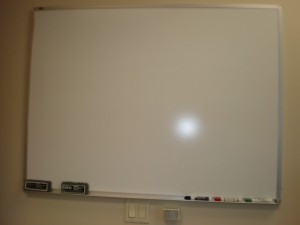What got you hooked to science in the first place? More importantly, what or who persuaded you that making science your career was, not only worth considering, but should be actively pursed? I’m sure, I am preaching to the converted; we all think science is not only cool, but a worthwhile and rewarding career path; so why is it that we can’t enthuse the younger generations that it is the case too? In this GeoEd post, Sam Illingworth highlights STEM (Science, Technology, Engineering and Maths) careers and why maybe it’s time we broke down some old stereotypes.
The Wellcome Trust Monitor was originally conceived in 2009 as a means to track over time the UK publics’ interest in, attitudes towards, and experience and knowledge of science. Of the 306 young people, aged between 14 and 18 years, interviewed for the 2013 report, 82 % stated that they found their school science lessons to be interesting. However, whilst 82 % of them also considered science to be a good area of employment to go into (citing good pay, interesting work, and the ability to make interesting discoveries as the main reasons for thinking so), 63 % of them said that they actually knew little or nothing about careers in science.
The prevailing view of the typical science career progression is that young children initially have a high level of interest in science, but that, as they move through the educational system, interest is lost at every stage. Whilst the results of the Wellcome Trust’s survey would seem to indicate that there is still enthusiasm in science subjects at the secondary school level (11 – 18 years old), they also suggest that science-related careers may not be pursued by young people because of a lack of information, rather than because of a lack of desire.
With most young people saying that they received careers advice from either their family (67%) or teacher (49%), there is the possibility that their future career paths are being biased towards areas in which these sources are able to provided guided support. Even more alarmingly, only 10% of young people thought that careers advice from a real-life scientist was amongst the most useful that they could receive. Is this because they do not wish to pursue a science-related career, or because they do not identify with scientists as people like them, but rather see them as stereotypical caricatures?
It is important for school students to realise that pursuing a science degree at University does not mean that you end up working in a laboratory wearing a white coat and safety goggles. Whilst this might be perceived as an ideal job for a small proportion of students it is by no means the norm, and so as scientists, and as science graduates, we have a responsibility to not only highlight the wide diversity of science and scientists, but also the large number of other opportunities that are available to science graduates outside of the realms of academia and research.
At my institution (Manchester Metropolitan University), some of the job roles that our science graduates were pursuing within 6 months of graduating included: aviation security officer, custom bike designer, defence officer, education assistant for a charitable organisation, web content writer, restaurant owner, and professional rugby player! This is obviously a very varied list, and the fact that almost 90 % of all our 2012/13 Science & Engineering leavers went into work and/or further study 6 months after graduation is representative of the demand for science undergraduates, even in the current economic climate.
As scientists we have the opportunity to encourage school students to contemplate a career in science as an achievable and exciting option, and also to encourage them to think about the different opportunities that a science degree could afford them. We can do this through a variety of school outreach activities such as career fairs, one-to-one interviews, and the sharing of resources with both the students and the educators. One great resource that we could share is EGU’s database for undergraduate and postgraduate courses, which has a list of a range of undergraduate and postgraduate courses spanning the geosciences across Europe, and which has been designed specifically for those who would like to search for courses based on a specific subject area, rather than by university. It is worth noting that the EGU also offers a platform for job seekers to find vacancies in the Earth, planetary, and space sciences. Research positions relevant to both recent graduates and early career researchers can be found here.
As well as showcasing the interesting research with which we are involved, as scientists we have a responsibility to make ourselves more approachable to students as a source of relevant and useful career advice. So the next time you are in front of a group of school children demonstrating the fun and fascinating world of science, be prepared to spare a moment to discuss your own scientific journey, and the many varied and exciting career paths that studying science at undergraduate level and beyond can result in.
By Sam Illingworth, Lecturer, Manchester Metropolitan University




Pingback: GeoLog | GeoEd: Career pathways and expectations in the geosciences – straight lines, wiggles and all out chaos.